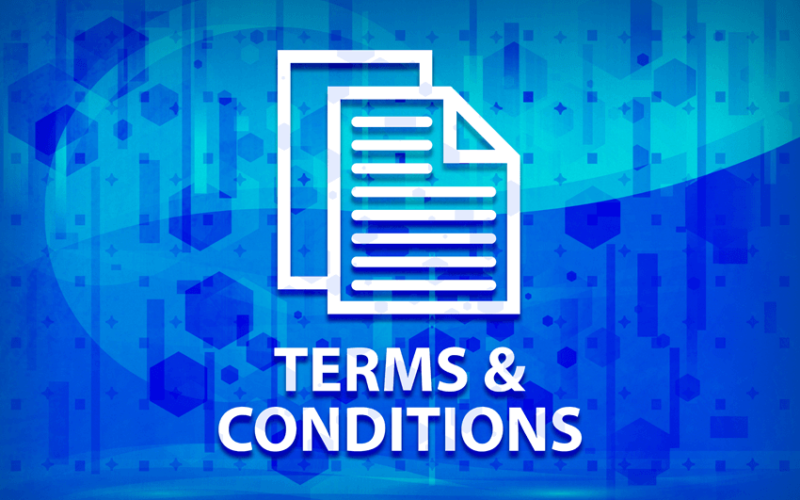With the P2B Regulation (EU) 2019/1150, the EU now sets out rules for online platforms and online marketplaces (hereinafter referred to as “Online Platform(s)”) regarding the content of the general terms and conditions (“T&Cs”) of Online Platforms with their merchants on the relevant Online Platform. Yes, you read correctly; this is not about rules Online Platform have to adhere to with respect to their end customers. The P2B Regulation governs the relationship between Online Platform and merchant. In so doing, the EU has not focused on the consumer as the party to be protected; this time it is the merchant who needs protection from the Online Platforms.
Table of Contents
Background of the P2B Regulation
In e-commerce there is a multitude of platforms on which merchants offer their products and services to end customers. It is well known that big platforms such as Amazon and eBay have a wide reach and are of vital importance as distribution channels for merchants. Some Online Platforms’ T&Cs currently contain very one-sided terms to the detriment of the merchants, particularly regarding the blocking of access to the Online Platform.
The intention of the P2B Regulation is to limit the power of Online Platforms in order to prevent Online Platforms from imposing grossly unfair and non-transparent business practices on merchants.
Who does the P2B Regulation apply to?
The P2B Regulation affects Online Platforms as well as online search engines. However, in this blog entry, I will focus on Online Platforms.
According to the P2B Regulation, Online Platforms are services that meet the following criteria:
- The service of the Online Platform must be provided electronically and from a distance;
- The Online Platform enables merchants to offer products or services to consumers by arranging the initiation of direct transactions between merchants and consumers, independent of where such transactions are concluded in the end;
- The services of the Online Platform are offered on the basis of a contractual relationship with the merchant.
The location of the respective Online Platform is not a decisive factor for the application of the P2B Regulation.
The P2B Regulation applies if:
- it is dedicated to commercial users;
- it is dedicated to merchants domiciled in the EU; and
- these merchants offer their products and services to consumers in the European Union.
The scope of application of the P2B Regulation was designed this way in order to prevent operators of Online Platforms from evading the provisions of the P2B Regulation by simply stating that the respective Online Platform has no registered office or branch in the European Union.
When does the P2B Regulation enter into force?
The P2B Regulation will enter into force on 12 July 2020. The P2B Regulation is an EU Regulation and is therefore directly applicable. It does not need to be transposed into German law by the German legislator, as is the case for EU directives.
What provisions does the P2B Regulation contain?
The P2B Regulation applies to the T&Cs that are concluded between the Online Platform and the merchant. Pursuant to the P2B Regulation, the T&Cs of Online Platforms must contain certain rules and fulfil certain requirements.
In line with the P2B Regulation, the T&Cs must, among other things:
- be phrased in a clear and comprehensible manner;
- be easily accessible at all times;
- state the reasons for which the parties can decide to suspend or terminate the access to the Online Platform;
- contain information about additional distribution channels or any partner programs through which the Online Platform could market the merchant’s products or services;
- contain general information on how the T&Cs affect the ownership and control of the merchant’s intellectual property rights.
We have provided further details on some of the requirements contained in the P2B Regulation below.
Termination of usage of the online platform according to the P2B Regulation
According to the P2B Regulation, with respect to the termination of the provision of the platform, the T&Cs of the Online Platform must state a minimum deadline as well as grounds for such termination.
The T&Csof the Online Platform have to provide a minimum deadline of 30 days. Deviations from this deadline may be permissible if legal or official obligations exist and if the merchant repeatedly violates the T&Cs.
Additionally, the termination must be based on one or more grounds contained in the T&Cs.
There is still some discussion as to whether these grounds are considered as legal termination requirements for a termination to be effective and if such grounds are subject to judicial review.
Offer ranking pursuant to the P2B Regulation
Online Platforms must state the determining parameters for the ranking of the merchants’ offers on the Online Platform as well as their relative weighting to each other in the T&Cs.
Internal complaint procedure pursuant to the P2B Regulation
The P2B Regulation demands that Online Platforms set up an internal complaint procedure for merchants.
Within the internal complaint procedure, Online Platforms have to fulfil the following obligations pursuant to the P2B Regulation:
- Thorough assessment of complaints and potentially necessary processing of the complaint to find an adequate solution;
- Timely and effective processing of complaints;
- Individual, clear and comprehensively phrased notification of the merchant about the result of the internal complaint procedure.
Online Platforms have to adapt their current processes for complaints from merchants in accordance with these criteria. Once again for clarification: The P2B Regulation does not concern a complaint procedure for end customers but a complaint procedure for merchants for complaints against the Online Platform.
Furthermore, Online Platforms have to publish anonymised results of the complaints. The P2B Regulation uses the phrase “publish”, which indicates that it is not sufficient to make the results available to the merchants. Instead, these results have to be published as a whole.
Online Platforms have to publish the number of complaints submitted, the most important types of complaints, the average processing time of the complaints as well as aggregated information about the results of the complaints.
Mediation according to the P2B Regulation
The P2B Regulation requires Online Platforms to perform mediations if the internal complaint procedure does not lead to a solution to the complaint.
For this, the Online Platform has to name at least two mediators in their T&Cs. The P2B Regulation sets out requirements for mediators.
Among others, the mediators need to be impartial and independent and they must be able to provide their mediation services promptly. Additionally, the mediation services must be affordable.
With regard to mediators, no market standard has yet been established . As this was taken into account, the P2B Regulation calls on member states together with the Online Platforms as well as organisations and sector associations to establish organisations that can provide such mediation services.
The following needs to be noted: the current European complaint procedures, e.g. via the European Platform for Online Dispute Resolution are solely intended for complaints from consumers and precisely not for complaints from merchants.
Required amendments
The P2B Regulation requires Online Platforms to check their current T&Cs and provide an updated version to their merchants in the summer of 2020.
The interpretation and exact application of the P2B Regulation will certainly also keep the courts busy in future as some Online Platforms may still not treat their merchants particularly nicely, even with the P2B Regulation.
Cover picture: Copyright © Adobe Stock /miug




